Using KeystoneJS Hooks: Enhancing Functionality and Streamlining Automation
In the dynamic world of web development, staying ahead of the curve is crucial for businesses to maintain a competitive edge. One of the most effective ways to achieve this is by harnessing the power of modern technologies and frameworks. KeystoneJS, a powerful content management system (CMS) and web application framework, offers an array of features that enable developers to create robust and customizable web applications. In this blog, we will delve into the realm of KeystoneJS hooks, exploring how they can extend functionality and streamline automation, ultimately leading to better web development outcomes. As part of our commitment to offering top-notch services, we also introduce our "Hire KeystoneJS Developer Services" that can help your business leverage the full potential of this remarkable framework.

KeystoneJS is renowned for its flexibility and extensibility, and one of its standout features is the concept of hooks. Hooks in KeystoneJS allow developers to inject custom code at specific points in the application's lifecycle, enhancing its capabilities and automating tasks. Let's take a closer look at the different types of hooks and how they can be used to supercharge your web application:
- List Hooks: List hooks are triggered when data is fetched from the database. By utilizing list hooks, developers can modify or enrich data before it's presented to the user, ensuring a tailored and seamless user experience. For instance, you can implement a list hook to automatically generate and display relevant tags for blog posts, enhancing content discoverability.
- Field Hooks: Field hooks allow you to manipulate data before it's saved to the database or displayed to the user. These hooks are perfect for data validation, transformation, or custom formatting. Imagine having an e-commerce platform where prices are automatically converted to different currencies based on the user's location, all thanks to the power of field hooks.
- Schema Hooks: Schema hooks provide a way to execute custom logic when a particular schema is loaded or updated. This is particularly useful for scenarios such as sending email notifications when a new user signs up or integrating with external services upon data changes.

Now that we've gained a deeper understanding of KeystoneJS hooks, let's explore some real-world examples of how these hooks can extend the functionality of your web application:
- Automated Tagging and Categorization: Using list hooks, you can analyze the content of blog posts and automatically assign relevant tags or categories based on keywords. This not only saves time for content creators but also ensures consistency in content organization.
- User Engagement Tracking: Implementing schema hooks, you can capture user interactions and track engagement metrics. For instance, you can record the number of likes, shares, and comments on each post, enabling data-driven decisions for content optimization.
- Custom User Notifications: Field hooks can be employed to send personalized notifications to users. When a user completes a specific action, such as submitting a form, a field hook can trigger an automated email or push notification, enhancing user engagement and satisfaction.

As your business aims to leverage the full potential of KeystoneJS hooks and create feature-rich web applications, partnering with experienced KeystoneJS developers becomes paramount. Our "Hire KeystoneJS Developer Services" offer a pool of seasoned professionals who are well-versed in harnessing the capabilities of KeystoneJS to meet your specific business needs. Whether you're looking to implement custom hooks, optimize existing functionality, or build entirely new features, our skilled developers are equipped to deliver results that align with your vision.
Conclusion:
KeystoneJS hooks open the door to a realm of possibilities for extending functionality and automating tasks within your web applications. By strategically leveraging list hooks, field hooks, and schema hooks, you can create a seamless user experience, drive user engagement, and streamline processes. And with our "Hire KeystoneJS Developer Services," you have the opportunity to collaborate with experts who can bring your web development aspirations to life. Embrace the power of KeystoneJS hooks and propel your business to new heights of success.
For more information about our services and how we can assist you in maximizing the potential of KeystoneJS, feel free to reach out to us at [email protected] or give us a call at +91 987 133 9998. Your journey to elevated web development starts here at CloudActive Labs India Pvt Ltd. Visit our website at www.cloudactivelabs.com to explore further.
























